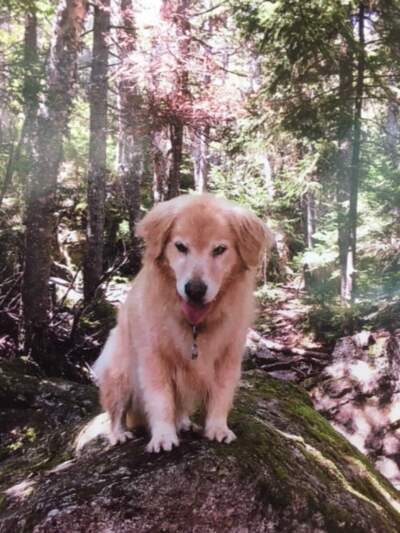Advertisement
Commentary
This grief is mine, not yours

It’s a funny thing, grief. For one thing, there’s no need to reach a certain age before acquiring expertise. For another, there are shades: there is grief and there is grief.
I have gone to sad family funerals without shedding a tear (even when trying hard to muster a few for the sake of solidarity). Obituaries can be touching—fascinating—without causing any pain at all, not a pinch. Look—the MIT scientist who invented Apple Jacks! A woman who lived in a lighthouse until she was 90!
We can serve as shoulder-patters and attentive, genuine listeners for those who mourn with no need for Kleenex ourselves. It’s a blessing, really; balance in an unbalanced world. If all of us were felled by the same sorrow at the same time for the same loss, no one would be left standing to give comfort.
With just a little effort or the simple passage of time and life, anyone can become a grief expert of sorts. I happen to be one through training, since so much of psychiatry concerns the effects of loss, but am also one through the creation of a series of obituaries made for radio.
Grief is a funny thing, in part because it is undeniably honest.
Sometimes, though, not grieving in the presence of the grief of others seems harsh to me. A colleague loses a parent, and the loss pierces her bones while it remains remote for me. It makes me wonder about myself. I know I have a pulse and measurable blood pressure (I know this, because it’s usually high) but have worried: Is there something essential missing in this heart of mine? Some lack of a sensitive nutrient for life? Some deficiency that needs an emergency infusion of sorrow?
And yet, when our dog Moriah died recently after 10 years of life together, the days became suddenly inconsolable. We drove her to the veterinary hospital before dawn, after a catastrophic stroke. The waiting room was empty, and florescent lighting above created a sense of jaundice below. Steps echoed on the linoleum; ours, the tech with the leash. We entered the hospital with a dog. We left without one. The tears, it turned out, had just been waiting.

Grief is a funny thing, in part because it is undeniably honest. In theory, we should grieve everyone or everything that has held a meaningful place in our lives for a certain amount of time; this relationship, that car. Yet to be truthful, sometimes the world turns after a loss just as it always has. Reaching my age has taught me there can be no dissembling. All griefs are not similar, all grief is not predictable, all grief is not by the book, and your grief is not mine.
In my kitchen there is this empty dog bed, and this cabinet where biscuits were stored, which no paper towel could ever wipe fully clean of crumbs. The dog would lay herself out in front of it, facing the drawer with a patient, intentional, slightly accusatory gaze. It preceded the adoring gaze she gave us when we opened the drawer. Remembering it now reduces me to a river.
Funny thing, grief. A few days ago, I went to water the Clivia in the front hall. It’s almost 30 years old and has produced a blossom or two each year, in spite of decades of sub-par care. I look for the flowers every winter and follow their growth with pleasure; they’re baby birds rising in the nest. But over the last few winters, my Clivia has begun to struggle. I pretended not to notice. Last February, for the first time, there was no flower. I continued to pretend, because it was still possible. Then a few days ago, it became impossible. Most of the leaves had turned brown and yellow, while the rest were shriveling. Fertilizer is not going to remedy this. After a long and generous life, surviving arctic blasts from swinging doors in February and unholy heat in August, the plant is dying.
Advertisement
The grief I felt in that moment was out of all proportion to horticulture. It was wildly impractical, almost otherworldly. Mahoney’s will have another Clivia, and Home Depot will, too, probably at a lower price. But they won’t be this plant. They won’t be this dog.
This grief is not yours. It is mine.
Follow Cognoscenti on Facebook and Instagram. And sign up for our weekly newsletter.
